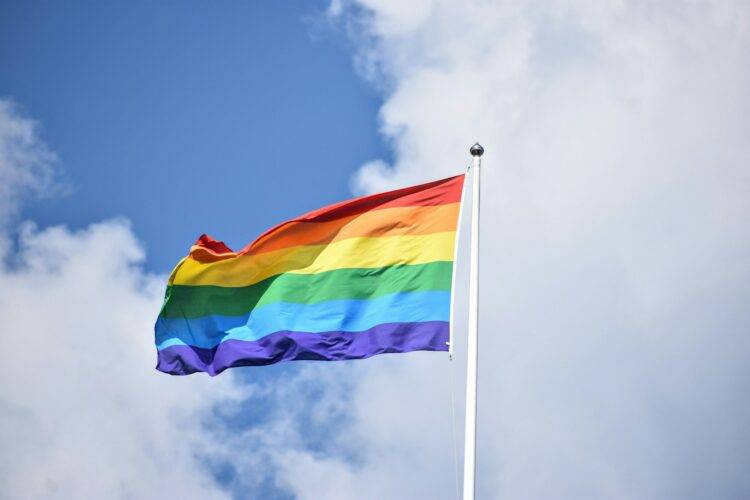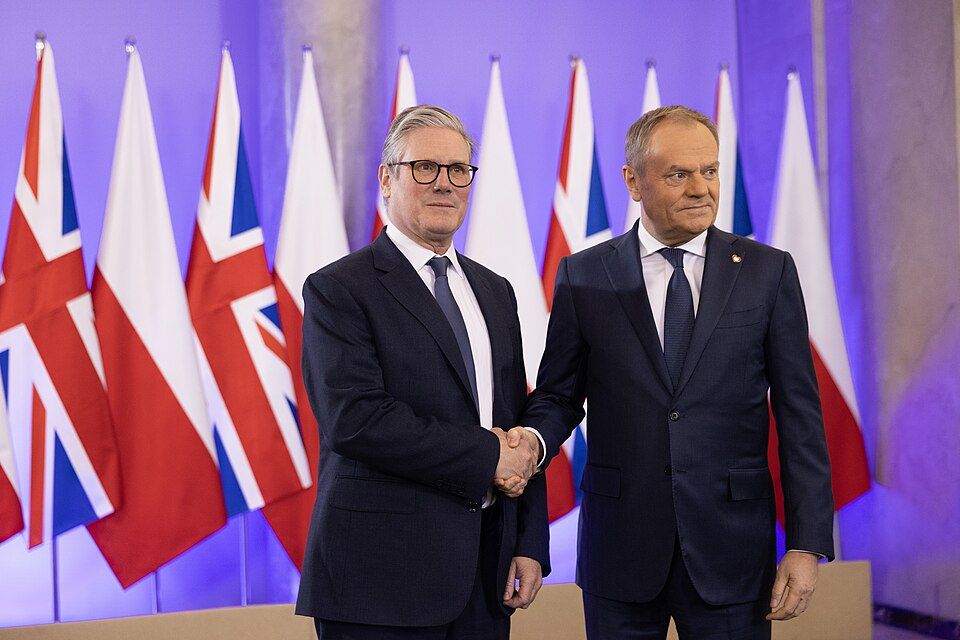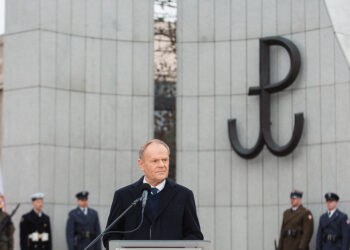A significant milestone in Poland’s legislative landscape has been reached with the introduction of a bill to legalize registered civil partnerships. The proposal, authored by Katarzyna Kotula, the Minister for Equality, was officially published on the website of the Governmental Legislative Center. Kotula took to social media to announce the development, calling it a culmination of months of work by her team.
- More News from Poland on our Homepage.
- Sign up to our Newsletter
“This is an incredibly important day for me. I am presenting the outcome of many months of labor by our entire team,” Kotula wrote, expressing her pride in the achievement. The bill has now entered the phase of public and inter-ministerial consultations after receiving input from various NGOs.
“Historic Moment for Equality”
Kotula emphasized the broader significance of this legislative effort, calling it a “new chapter in the long march toward equality.” She credited years of work by LGBT organizations and civil society for bringing the country to this historic moment. “We hope this process will conclude with the introduction of a new legal institution into Polish law,” she added, referring to the creation of registered civil partnerships.
The bill has garnered support from segments of the ruling coalition, but Kotula acknowledged that she will need to have thorough discussions with other political factions, including the Polish People’s Party (PSL), to secure broader approval. “I’m counting on sensible conversations with colleagues,” she said, underscoring that the proposal is a compromise, albeit a positive one.
You may also be interested in
Kotula’s remarks also referenced recent statements made by Donald Tusk, leader of the Civic Coalition, suggesting the government would prioritize the legalization of civil partnerships. The minister remains optimistic that this government-sponsored proposal will face fewer controversies compared to previous attempts led by lawmakers. She noted that various political groups, including Poland 2050 (part of the Third Way coalition), had voiced support for civil unions during their election campaigns.
In terms of next steps, Kotula indicated she is willing to engage with President Andrzej Duda. She recalled that Duda had previously shown an openness to discussing legal protections for same-sex couples, referring to a previous draft bill on “close persons” initiated by the president’s office. “Signals from the Presidential Palace suggest that he would be willing to have conversations once the bill is ready,” Kotula said.
Political Reactions
This proposal has sparked significant debate within the ruling coalition, particularly with the Polish People’s Party (PSL), which has expressed reservations and plans to introduce its own bill focusing on the status of the closest person.
The PSL’s alternative proposal seeks to address issues such as inheritance, medical information access, and property rights for individuals in close relationships, without legalizing same-sex partnerships. They emphasize that their bill is designed to comply with recent European court rulings against Poland. However, there are still unresolved issues, particularly regarding the potential misuse of the status for financial transactions and the criteria for verifying the duration of relationships.
The coalition’s internal disagreements have led to a complex situation, with both sides preparing to submit their respective bills. Minister Kotula remains hopeful for a compromise, aiming to convince her colleagues of the benefits of her proposal. Meanwhile, the PSL is determined to maintain its stance, believing their bill has a better chance of being signed by President Andrzej Duda. The outcome of this legislative effort remains uncertain, as both sides navigate the political landscape to achieve their goals.
Rafał Bochenek, the spokesperson for the Law and Justice party (PiS), argues that the bill is unconstitutional and claims it is a distraction from other pressing issues like public finance, healthcare, and military armament. He believes the bill is a step towards legalizing adoption by same-sex couples, which he opposes, citing Article 18 of the Polish Constitution that defines marriage as a union between a man and a woman.
You may also be interested in
British “The Telegraph” Hails Poland’s Economic Transformation as Blueprint for Prosperity
Poland’s three-decade economic transformation is drawing rare, emphatic praise from one of Britain’s most influential business newspapers, which argues that…
Kiełbasa World Champion: Polish Smoked Sausage Chosen the Best on the Planet
Smoked Polish sausage has been named the best cooked sausage in the world in a global ranking by culinary guide…
Bochenek said that Law and Justice does not support the project, which he considers harmful. The politician added that it is interesting that the government has time to deal with civil partnerships, but lacks it to establish a tax-free allowance of 60 thousand PLN, lower health insurance for entrepreneurs, and fulfill promises for farmers.
Krzysztof Bosak, a prominent member of the Konfederacja party, has stated that his party will not support the proposed legislation on civil partnerships in Poland. He argues that the regulations aim to institutionalize a certain ideology and that diluting family law would harm the most vulnerable, particularly children and women. Bosak believes that creating a weaker form of union than marriage would undermine the protection of these groups and that the attempt to mimic family law for same-sex couples is an effort to institutionalize an ideology.
Bosak also addressed the issue of tax relief, emphasizing that it should be granted based on having children rather than having a same-sex partner, as same-sex partnerships do not result in children. He pointed out that inheritance matters are already regulated and sees no reason for non-family members to be exempt from inheritance tax. If such exemptions were to be considered, he argues, they should apply equally to all citizens.
Key Features of the Bill
The proposed legislation outlines that civil partnerships can be established before a civil registry official, provided both partners make a joint declaration. One of the bill’s key provisions is that a partner in such a union would have the right to participate in decisions related to the upbringing of a child being raised by the other partner, provided the biological parent does not object.
Moreover, the bill allows couples to determine the legal status of their assets. They may choose between a joint or separate property regime, and they can opt for a partnership with equal distribution of future earnings. This flexibility is designed to accommodate both same-sex and opposite-sex couples, giving them greater autonomy over their financial arrangements.
The bill also seeks to protect couples from discrimination, stating that registered partnerships will be grounded in principles of equality and non-discrimination. The primary aim is to offer legal recognition and protection for same-sex couples who cannot access marriage, as well as for opposite-sex couples who may prefer not to marry for various reasons.
A Response to Social Needs
In the bill’s rationale, it is stated that legalizing civil partnerships is a response to the social realities of Poland. It addresses the needs of same-sex couples who have been historically excluded from legal recognition and provides an alternative for opposite-sex couples who live in informal relationships.
The legislation represents an important shift in Poland’s approach to civil rights, marking a step towards greater inclusion and protection for all citizens, regardless of sexual orientation or relationship status. If passed, the law will grant couples legal clarity regarding their rights and responsibilities, helping to prevent exclusion and provide legal security.
This bill comes as Poland continues to grapple with wider debates on LGBT rights and civil liberties, a topic that has been a contentious issue in recent years. The introduction of the legislation offers a new avenue for progress in the ongoing pursuit of equality in the country.
Poland has long been a conservative country in terms of family law, with same-sex marriage and civil unions previously having little legal standing. The new bill builds on years of advocacy by LGBT organizations, and its submission marks a potential turning point in the nation’s legislative and social landscape. While its passage is not guaranteed, it signals a significant step forward in recognizing and protecting diverse family structures.
Support Poland 24
Poland 24 is an independent publication dedicated to providing accurate, insightful, and timely news from Poland. In an era where reliable journalism is more important than ever, we take pride in delivering content that keeps you informed about the latest developments in politics, culture, and society in Poland. However, as an independent outlet, we rely on the support of our readers to continue operating without the influence of corporate sponsors or political agendas. Your donations are crucial to help us maintain the quality of our reporting, covering both major headlines and the stories that often go untold by mainstream media.
By supporting Poland 24, you are not only helping us sustain our website, but you are also contributing to the creation of more diverse, in-depth content. Every donation, big or small, allows us to invest in better resources, hire experienced journalists, and cover a wider range of topics with the detail and attention they deserve. If you value independent journalism and want to see more high-quality content about Poland, please consider donating today. Your support truly makes a difference in our ability to continue bringing important news to the public.




















